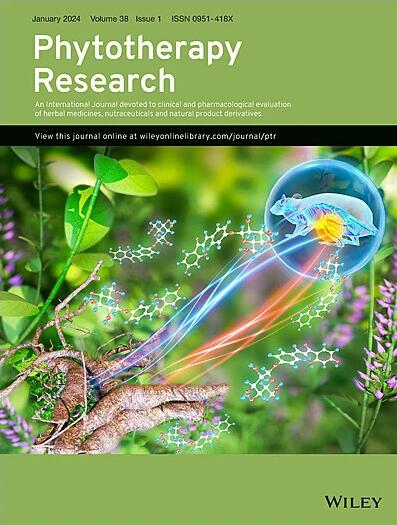谷胱甘肽在帕金森病病理生理学中的作用和多酚的治疗潜力
IF 6.1
2区 医学
Q1 CHEMISTRY, MEDICINAL
引用次数: 0
摘要
氧化应激被认为在帕金森病(PD)的发生和发展中起着核心作用。在大脑中,神经元对氧化特别敏感,部分原因是其内在抗氧化防御能力较弱。从理论上讲,神经元主要依靠邻近的星形胶质细胞为谷胱甘肽(GSH)合成提供含半胱氨酸的产物,从而提供抗氧化保护。星形胶质细胞和神经元拥有多种氨基酸转运系统,可转运 GSH 及其前体。事实上,GSH 是中枢神经系统中最丰富的内在抗氧化剂。大脑中 GSH 的耗竭和/或新陈代谢的改变是导致帕金森病发病的原因之一。值得注意的是,多酚具有强大的抗氧化活性,可以增强 GSH 氧化还原系统。大量体外和体内研究表明,茶多酚对帕金森氏症患者的神经有很强的保护作用。流行病学研究发现,摄入膳食中的多酚与降低帕金森氏症风险之间存在关联。在这篇综述中,我们总结了目前有关大脑中 GSH 的生物合成和代谢的知识,重点介绍了它们在帕金森病中的作用和治疗潜力。特别是,我们将重点放在可提高大脑 GSH 水平以防治帕金森病的多酚类物质上。此外,我们还讨论了基于多酚的疗法目前面临的一些挑战和未来前景。本文章由计算机程序翻译,如有差异,请以英文原文为准。
Role of Glutathione in Parkinson's Disease Pathophysiology and Therapeutic Potential of Polyphenols
Oxidative stress is recognized to have a central role in the initiation and progression of Parkinson's disease (PD). Within the brain, neurons are particularly sensitive to oxidation due in part to their weak intrinsic antioxidant defense. Theoretically, neurons mostly depend on neighboring astrocytes to provide antioxidant protection by supplying cysteine‐containing products for glutathione (GSH) synthesis. Astrocytes and neurons possess several amino acid transport systems for GSH and its precursors. Indeed, GSH is the most abundant intrinsic antioxidant in the central nervous system. The GSH depletion and/or alterations in its metabolism in the brain contribute to the pathogenesis of PD. Noteworthy, polyphenols possess potent antioxidant activity and can augment the GSH redox system. Numerous in vitro and in vivo studies have indicated that polyphenols exhibit potent neuroprotective effects in PD. Epidemiological studies have found an association between the consumption of dietary polyphenols and a lower PD risk. In this review, we summarize current knowledge on the biosynthesis and metabolism of GSH in the brain, with an emphasis on their contribution and therapeutic potential in PD. In particular, we focus on polyphenols that can increase brain GSH levels against PD. Furthermore, some current challenges and future perspectives for polyphenol‐based therapies are also discussed.
求助全文
通过发布文献求助,成功后即可免费获取论文全文。
去求助
来源期刊

Phytotherapy Research
医学-药学
CiteScore
12.80
自引率
5.60%
发文量
325
审稿时长
2.6 months
期刊介绍:
Phytotherapy Research is an internationally recognized pharmacological journal that serves as a trailblazing resource for biochemists, pharmacologists, and toxicologists. We strive to disseminate groundbreaking research on medicinal plants, pushing the boundaries of knowledge and understanding in this field.
Our primary focus areas encompass pharmacology, toxicology, and the clinical applications of herbs and natural products in medicine. We actively encourage submissions on the effects of commonly consumed food ingredients and standardized plant extracts. We welcome a range of contributions including original research papers, review articles, and letters.
By providing a platform for the latest developments and discoveries in phytotherapy, we aim to support the advancement of scientific knowledge and contribute to the improvement of modern medicine.
 求助内容:
求助内容: 应助结果提醒方式:
应助结果提醒方式:


